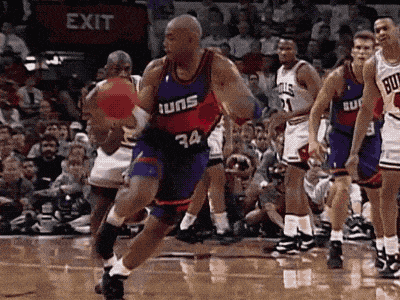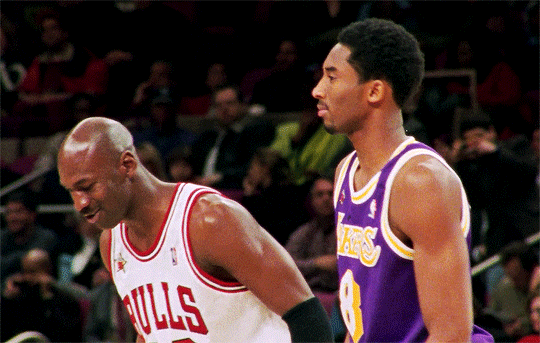Pain of three
The game doesn’t look fun anymore at this point. At this point, after the Bull’s second title and Jordan serving as the international face of the Dream Team, we have reached peak Jordan-mania. He had conquered the basketball world and exploded the importance and profile of the game worldwide. In many ways, Michael Jordan was the NBA. He was existing on another plane. Playing a game beyond the game. On and off the court he had an untouchable aura. And you can see here, it was taking a toll on Michael Jordan the human at the center of the global phenomenon.
However the task at hand was to pick up the ball and keep on winning. With the entire league gunning against him, Jordan grew even more hardcore with his training and weights routine. The media smear campaign around his gambling and bullying of teammates would intensify. Michael prickled and recoiled from all the heat. Shutting himself off from the media and focusing on winning basketball games. As usual, he began taking all of these media slights personally, and churning them into his legendary fuel.
The biggest basketball slight of the season would be Charles Barkley winning the MVP award. Yes, Charles had an incredible season with the Phoenix Suns and was a legendary Hall-of-Fame player in his own right. But when the award was announced, it felt more like he was winning the “best player in the NBA whose name isn’t Michael Jordan” award. Predictably, Jordan took offense and powered his game in the NBA Finals to another level, which yielded the Bulls third straight NBA championship. Only at the celebration, Jordan didn’t seem overcome with emotion as he had after his first title and he didn’t seem overjoyed as he did in 1992. He seemed flat out exhausted. There was even talk of him retiring. He probably just needed a summer off. The dude looked flat our spent from being a living god slash superhero for the past three years.
Father’s death
The tragic news of his father’s murder came in the offseason. It was the final blow in a long run of tough times for Jordan. It also had the effect of turning him back into a sympathetic character. It was a reminder for the hype-crazed media that this global icon was indeed human. A son who had lost his father. It cast a further shadow over what had been an already subdued championship off-season. There would be no celebrations. Just reflection and meditation as Michael looked toward the future.
“I have nothing left to prove”
After the dour championship anti-celebration and his father’s death, it came as a shock, but not a huge surprise that Jordan would step away from the game. At the time, as a fan, it felt inevitable that the Bulls would keep on winning and had a legitimate chance to win four titles in a row. But we would never get the chance to find out when Jordan called it quits. While the sports world was robbed of the most iconic figure since Muhammad Ali, Jordan had already created a legendary career. From his perspective, he’d done it all. Proved himself as an individual dynamo, and then, three times over, proved that he had the ability to elevate his teammates and franchise into the stratosphere. He would leave a gaping hole in the sport landscape, but his legend was already assured of living on.
Why baseball?
As a young athlete in the middle of both a basketball and baseball career, Jordan’s devotion to baseball was a validating force in my own choice to play the game. I even opted for a “like Mike” semi retirement of my own from basketball as I went all in on baseball. (I would miss the game too much and rejoin the basketball team mid-season.) While the casual fan and media would criticize Michael’s “Detour” into baseball, I understood what it was doing for him as a competitor. For one, it lowered the stakes and profile of what he was doing. There were no expectations of the world’s best basketball player trying to give it a go on the baseball diamond. Secondly, it allowed Jordan to start at the beginning of an athletic challenge. The whole journey of building fundamentals, learning the mental game and challenging himself to move up the rankings on his team lay in front of him.
At first, it seemed like a media stunt. Or maybe even some far-flung marketing move by Jordan and super brand Nike. Eventually Nike leaned into these conspiracy rumors with a Steve Martin helmed Super Bowl commercial. But as Jordan stayed at baseball, the results and his game improved. His body even slowly started to morph into that of a baseball player as his training regime fully shifted to meet the demands of the game. He built more long term stamina and trained himself to adjust to the repetition of baseball. Eventually he got into a groove. He started stealing bases. His speed was still elite at this point. Baseball people speculated that he could possibly become a base-stealing specialist if he kept at it. He knocked a few balls out of the park. He moved up the minor leagues. His batting average rose as he entered the fall leagues.
As baseball entered the winter, it also entered into intense labor negotiations. The major leagues were headed for a strike and stoppage of play. The commissioner talked about starting the season with “replacement players.” Basically offering open tryouts to amateurs for the chance to officially play for big league clubs while the real major leaguers were holding out. For a fleeting moment it seemed like Michael Jordan could be the world’s most iconic replacement player. But he quickly came out and said he wouldn’t break the picket line, and that he stood with the major league players in their protest.
















